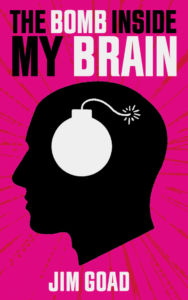Reggie Jackson’s Tortured Negro Soul

Reggie Jackson (Image source: Wikimedia Commons)
1,368 words / 8:35
On Thursday, June 20, Major League Baseball sponsored an event called “A Tribute to the Negro Leagues” at Rickwood Field in Birmingham, Alabama, where Negro players used to vie against other Negro players back before the brave and holy Negro Jackie Robinson famously broke baseball’s color barrier in 1947.
Audio version: To listen in a player, use the one below or click here. To download the mp3, right-click here and choose “save link/target as.”
At a panel discussion hosted by FOX Sports, retired New York Yankees shortstop Alex Rodriguez asked legendary slugger Reggie Jackson to share his feelings about returning to a city where Jackson had played as a minor leaguer in the 1960s before going pro and helping to lead both the Oakland A’s and New York Yankees to five World Series championships in the 1970s.

With his voice cracking, the 78-year-old Jackson — who is light-skinned, partially Puerto Rican, and sounds white if you close your eyes — poured the world a glass of his emotional pain as he recalled the days when white Southerners weren’t polite enough to use the word “Negro”:
I walked into restaurants, and they would point at me and say, “The nigger can’t eat here.” I would go to a hotel, and they’d say, “The nigger can’t stay here.” We went to [Oakland A’s owner] Charlie Finley‘s country club for a welcome-home dinner, and they pointed me out with the N-word — “He can’t come in here.” Finley marched the whole team out. Finally, they let me in there. He said, “We’re going to go to the diner and eat hamburgers. We’ll go where we’re wanted.” Fortunately, I had a manager in Johnny McNamara that if I couldn’t eat, if I couldn’t . . . if I couldn’t eat in a place nobody would eat, we’d get food to travel. If I couldn’t stay in a hotel, they’d drive to the next hotel and find a place where I could stay. Had it not been for Rollie Fingers, Johnny McNamara, Dave Duncan, Joe and Sharon Rudi, I slept on their couch three, four nights a week for about a month and a half. Finally, they were threatened that they would burn our apartment complex down unless I got out. I wouldn’t wish it on anyone. The year I came here, Bull Connor was the sheriff the year before. And they took baseball, interleague baseball, out of here. Because in 1963, the Klan murdered four black girls, children, 11, 12, 14 years old at a church here and never got indicted. It was there from the Klan — LIFE magazine did a story on them like you were being honored I wouldn’t wish it on anyone. At the same time, had it not been for my white friends, had it not been for a white manager and Rudi, Fingers, and Duncan and Lee Myers. I would have never made it. I was too physically violent. I was ready to physically fight some. I’d have got killed here because I’d have beat someone’s ass and then you’d have saw me [sic] in an oak tree somewhere.

You can buy Jim Goad’s The Bomb Inside My Brain here.
Holy smokes, that went from zero to Negro to lynching rather quickly!
Back in the early 1970s, when I was perched on puberty’s pimply cusp and baseball was in its waning days of being America’s favorite sport, I thought the stylistically anomalous Oakland A’s were the absolute coolest team in the world. Along with their seemingly endless combinations of retina-searing green-and-yellow uniforms, they became known as the “Mustache Gang” after Reggie Jackson showed up one day in 1972 for spring training with a mustache back when facial hair was considered a breach of etiquette against baseball’s wholesome image. Jackson refused to shave, and many of the other A’s followed suit, culminating in relief pitcher Rollie Fingers’s waxed mustachio.
From 1972-1974, the Mustache Gang won three straight World Series titles, becoming the only baseball team in history to achieve such a feat apart from the New York Yankees, who snapped up Jackson as a free agent in 1976.
Over the next two years, Jackson — always an erratic player who still holds baseball’s record for lifetime strikeouts — achieved mythic status and earned the moniker “Mister October” for his seeming ability to smash home runs at will in the World Series. His performance on October 18, 1977, when he hit three homers on the first pitch from three different pitchers, ranks as one of the most thrilling moments in baseball history.
And yet he still never recovered from being called “nigger.”
Mister October is one complicated fella. According to his biographer Mike Lupica:
He did great things in great moments. You can draw a line from [Babe] Ruth to Reggie, and from that line, you [can’t] find another home-run hitter in that line who was as colorful as he was. But buried deep inside, he was a terribly lonely and insecure person, and you know maybe he would be the buffet at a psychiatrist convention, and they’d be able to analyze him.

Among other players, Jackson developed a reputation as an aloof egomaniac. Hall of Fame pitcher Jim Palmer once wrote: “I would say Reggie Jackson was arrogant. But the word arrogant isn’t arrogant enough.” When asked whether Jackson was a “hot dog” [a showoff], his teammate Darold Knowles said, “There isn’t enough mustard in the world to cover Reggie Jackson.” Jackson was always boasting of an astronomical IQ, which he variously cited as 160 or 165. Upon hearing that Jackson claimed to have an IQ of 165, black player Mickey Rivers joked, “Out of what — a thousand?”
Reginald Martinez Jackson was born in 1946 in the small, middle-class Philadelphia suburb of Wyncote, Pennsylvania, which to this day remains majority-white. He constantly lamented that no matter how much success he achieved, this racist world persecuted him for being black, especially when he dared to date white girls:
I had white friends, although many of my white friends were not allowed to play with me. And so, you know, I had to leave early and meet them other places and things of that nature. I dated a white girl in high school, and I had to meet her. A buddy of mine used to go pick her up. . . . I knew I was a colored kid. I knew I was different. I knew I was less than, or at least thought of as less than.
According to Ed Linn’s 1982 book Steinbrenner’s Yankees, after a legendary 1977 scuffle with manager Billy Martin in the dugout, Jackson granted a post-game interview to reporters from The New York Times and New York Daily News in his hotel room while “[a] blonde was in the shower — a local girlfriend.” Jackson began wailing about his supposed mistreatment:
I’m just a black man to them who doesn’t know how to be subservient. I’m a black buck with an IQ of 160 and making $700,000 a year. They’ve never had anyone like me on their team before. . . . I’m a Christian, and they’re fucking with me because I’m a nigger, and they don’t like niggers on this team.
Ten years later, in a 1987 Sports Illustrated cover story, Jackson whined about how baseball’s racism was “a serious problem that isn’t going away”:
It was while I was in Birmingham that I met [Alabama football coach] Bear Bryant. His son was the general manager of the ball club. Bryant told me I was “the kind of nigger boy” they needed to show the people in his state that we would be good athletes and be good for his school. He said it as a compliment. He said it with his arm around me.
On June 20 of this year, shortly before he appeared on FOX Sports’ Negro Leagues shindig in Birmingham, Jackson once more shared the Bear Bryant “nigger boy” story with a reporter.
So, what has integration achieved for Major League Baseball and Birmingham, Alabama?
I suppose it depends on how you define a “Hispanic,” but according to a 2022 analysis, pro baseball is still majority white, 31.9% Hispanic, and a mere 7.7% black.
Birmingham is now 70% black, less than a quarter white, and was recently declared America’s most dangerous city.
I shed no tears for Mister October.




